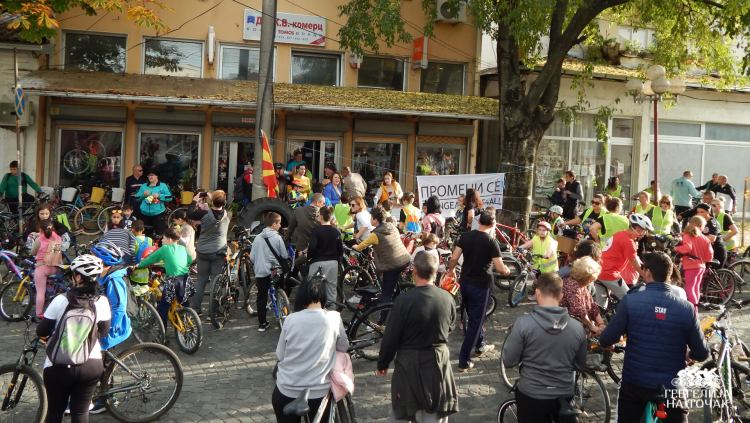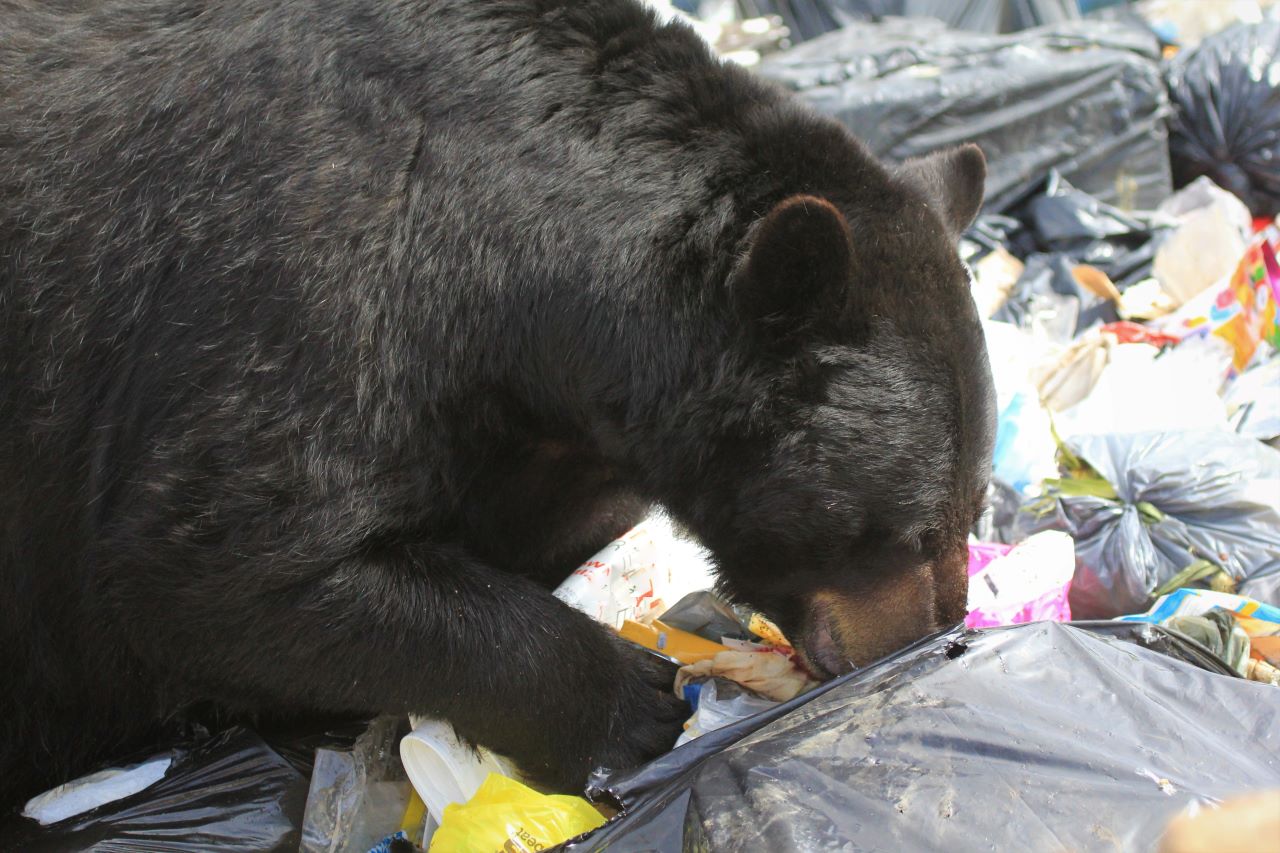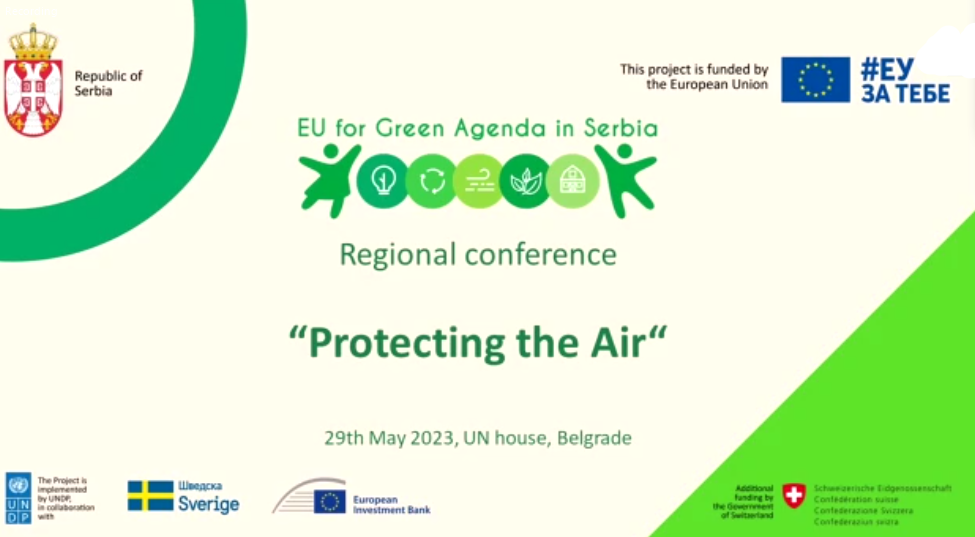
The countries from the Balkans face a common challenge – poor air quality. And this was the conclusion of the regional conference “EU for a green agenda in Serbia”, which was held today in Belgrade. But also, each country has good practices that were shared with the other participants. Today it was possible to hear about experiences and good practices from the Balkans and beyond (Croatia and Sweden), as well as from international organizations (World Health Organization and UNICEF).
The rector of the University “Goce Delchev” in Shtip, prof. Dr. Dejan Mirakovski and the Head of the environmental program of the United Nations Development Program, Anita Kodzoman, had presented the positive experiences from Skopje in relation to the measurements and analyses that identified the pollutants in Skopje, and the experiences from the specific actions that lead to improvement of air quality at certain location, such is the Lisiche settlement.
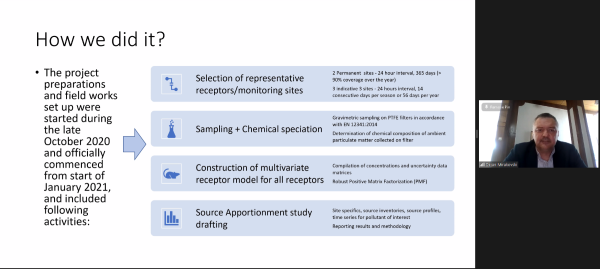
The results of the one-year measurements showed that biomass burning is the main source of pollution in Skopje, but only in the heating season. The traffic is the second most important source, with consistent participation throughout the year, especially in Novo Lisiche. The air pollution coming from burning oil, fuel oil, as well as industrial sources, have smaller contribution to bad air quality in Skopje, but these pollution sources exist throughout the year.
“An interesting fact that the measurements had indicated is that air pollutants in Skopje are mostly seasonal. That is why the proposed plan for improving the air quality in Skopje is prepared in an innovative way, and foresees actions for each season, for spring, summer, autumn and winter. Only in that way we can cover all the pollutants and improve the air quality in Skopje”, said Prof. Dr. Dejan Mirakovski.
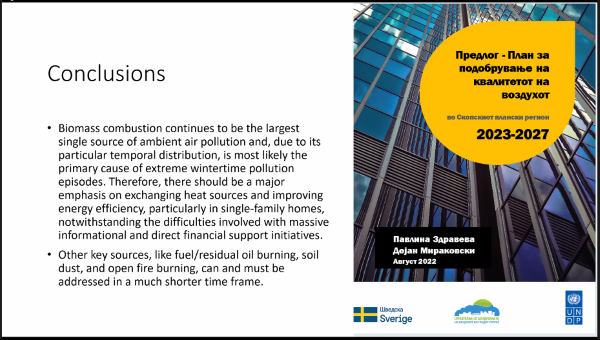
The Lisiche settlement in Skopje was chosen as the most suitable location for the implementation of specific demonstration activities in a total of 129 households with different social status. The measures were adapted to their social status and needs, and the results contributed to a significant improvement of the air quality in this settlement.
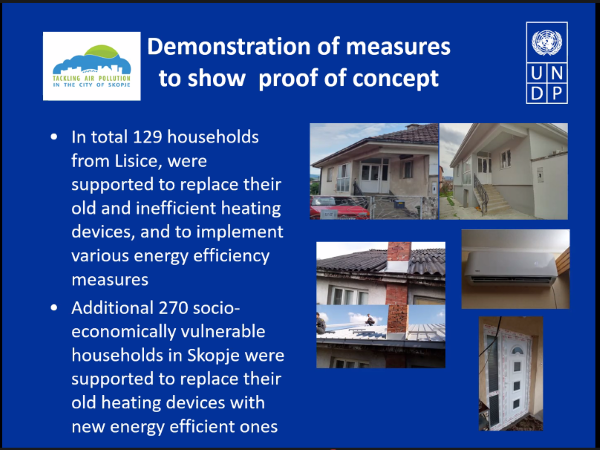
“It is difficult to change the perception that biomass is the cheapest source of energy, especially in the period of global economic and energy crisis. Therefore, actions to change behavior and raise public awareness must accompany any program for subsidizing heating elements,” concluded Ms. Kodjoman.
The general conclusion of the conference was that there are many good examples in the region for improving air quality, but their bigger sharing, promotion, and better cooperation are needed in order to replicate them.
Experiences from the preparation of a detailed study on the proportioning of pollutants in Skopje (presentation)
Individual heating – learned lessons (good and bad sites) from the demonstration model in Lisice (presentation)

